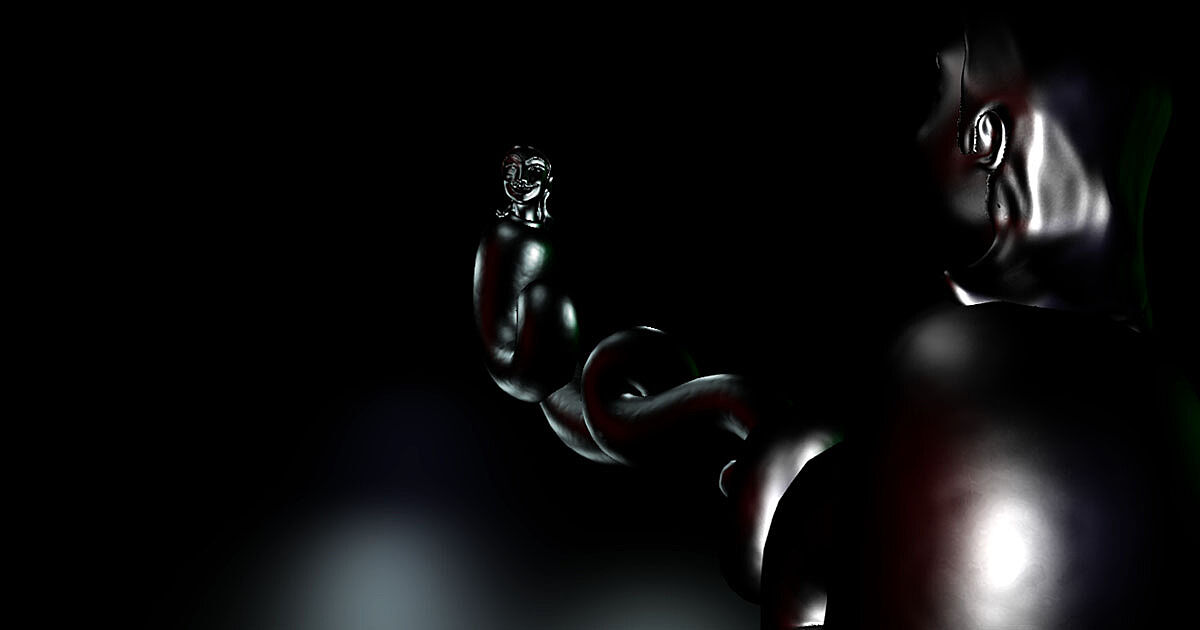Morehshin Allahyari: The Laughing Snake
2018
Morehshin Allahyari: The Laughing Snake
Morehshin Allahyari's hypertext narrative The Laughing Snake uses the myth of a jinn—a supernatural creature or monstrous figure in Arabian mythology—to explore the status of women and the female body in the Middle East. According to the original myth appearing in the fourteenth and fifteenth-century Arabic manuscript Kitab al-bulhan (Book of Wonders), the Laughing Snake had taken over a city, murdering its people and animals while numerous attempts to kill her remained unsuccessful. An old man finally destroyed the snake by holding up a mirror to her, which made her laugh so hard at her reflection that she died. Using images of the snake and the mirror, Allahyari takes us though a labyrinthine online narrative that mixes personal and imagined stories to address topics such as femininity, sexual abuse, morality, and hysteria. The snake emerges as a complex figure, reflecting multifaceted and sometimes distorted views of the female, and refracting images of otherness and monstrosity. The Laughing Snake is part of Allahyari's ongoing project She Who Sees The Unknown (2017–), in which she researches dark goddesses and fiendish female figures of Middle-Eastern origin to explore how the symbolic meanings embedded in traditions and myths surface in contemporary forms of oppression.
This project is co-commissioned with Liverpool Biennial and Fact Liverpool.
Morehshin Allahyari (b. 1985, Tehran, Iran) is an artist, activist, and educator whose work deals with the political, social, and cultural contradictions we face every day. She uses technology as a philosophical toolset to reflect on objects and as a poetic means to document personal and collective life struggles in the 21st century. Her 3D prints of sculptural reconstructions of ancient artifacts destroyed by ISIS, titled Material Speculation: ISIS, have been exhibited worldwide. She is the recipient of the 2016 leading global thinkers award by Foreign Policy magazine, Digital Sculpture 2016 Award by the Institute of Digital Art, NYU's LaGuardia Studio visiting scholar grant in 2017, and a 2018 Rhizome commission. Her work has been shown at institutions including the Queens Museum, Tate Modern, Venice Biennale di Archittectura, and Centre Pompidou, among others.
Read a conversation between curator Christiane Paul and the artist in the Liverpool Biennial's Stages #8 journal.
artport
View more on artport, the Whitney Museum's portal to Internet and new media art.

